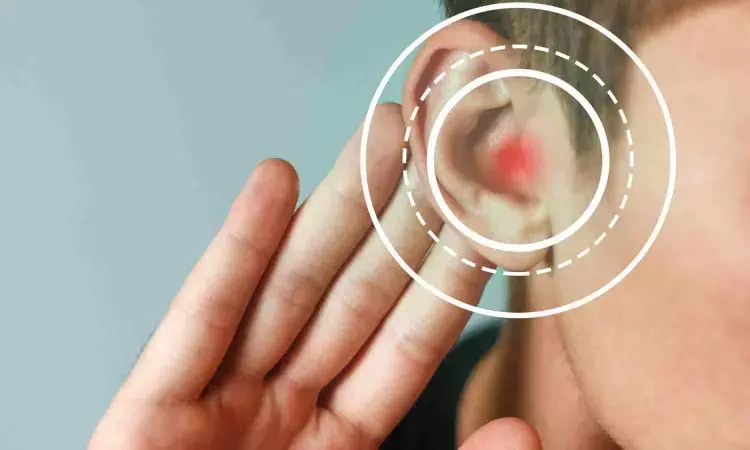- Home
- Medical news & Guidelines
- Anesthesiology
- Cardiology and CTVS
- Critical Care
- Dentistry
- Dermatology
- Diabetes and Endocrinology
- ENT
- Gastroenterology
- Medicine
- Nephrology
- Neurology
- Obstretics-Gynaecology
- Oncology
- Ophthalmology
- Orthopaedics
- Pediatrics-Neonatology
- Psychiatry
- Pulmonology
- Radiology
- Surgery
- Urology
- Laboratory Medicine
- Diet
- Nursing
- Paramedical
- Physiotherapy
- Health news
- Fact Check
- Bone Health Fact Check
- Brain Health Fact Check
- Cancer Related Fact Check
- Child Care Fact Check
- Dental and oral health fact check
- Diabetes and metabolic health fact check
- Diet and Nutrition Fact Check
- Eye and ENT Care Fact Check
- Fitness fact check
- Gut health fact check
- Heart health fact check
- Kidney health fact check
- Medical education fact check
- Men's health fact check
- Respiratory fact check
- Skin and hair care fact check
- Vaccine and Immunization fact check
- Women's health fact check
- AYUSH
- State News
- Andaman and Nicobar Islands
- Andhra Pradesh
- Arunachal Pradesh
- Assam
- Bihar
- Chandigarh
- Chattisgarh
- Dadra and Nagar Haveli
- Daman and Diu
- Delhi
- Goa
- Gujarat
- Haryana
- Himachal Pradesh
- Jammu & Kashmir
- Jharkhand
- Karnataka
- Kerala
- Ladakh
- Lakshadweep
- Madhya Pradesh
- Maharashtra
- Manipur
- Meghalaya
- Mizoram
- Nagaland
- Odisha
- Puducherry
- Punjab
- Rajasthan
- Sikkim
- Tamil Nadu
- Telangana
- Tripura
- Uttar Pradesh
- Uttrakhand
- West Bengal
- Medical Education
- Industry
Uncontrolled HbA1c Levels Linked to Higher Incidence of Hearing Loss in Type 1 Diabetes Patients: Study

India: A recent study published in the Indian Journal of Otolaryngology and Head & Neck Surgery has revealed that type 1 diabetes patients with poorly controlled HbA1c levels are at a higher risk of developing sensorineural hearing loss (SNHL) than those with well-managed blood sugar levels.
The researchers reported that pure tone audiometry assessments revealed a higher incidence of hearing impairment in patients with poorly controlled diabetes (HbA1c > 7%) compared to those with controlled diabetes (HbA1c < 7%). While gender did not significantly influence hearing loss, there was a strong association between elevated HbA1c levels and sensorineural hearing loss.
Tarun Ojha, along with colleagues from the Department of Otorhinolaryngology at Mahatma Gandhi Medical College and Hospital, Jaipur, Rajasthan, India, conducted a prospective study to investigate the prevalence of sensorineural hearing loss in individuals with Type 1 Diabetes Mellitus and uncontrolled HbA1c levels.
The study included 72 patients under 18 years diagnosed with Type 1 Diabetes Mellitus from the departments of Medicine, Pediatrics, and Endocrinology, all of whom were willing to undergo an ENT examination. Exclusion criteria included patients with Type 2 diabetes, a history of ear disease, head or ear trauma, use of ototoxic drugs, a family history of congenital deafness, prior ear surgeries, or exposure to excessive noise. Written consent was obtained from parents, and a thorough ENT examination was performed.
The researchers recorded the HbA1c values from the past year to classify patients based on their glycemic control. The cutoff for controlled diabetes was set at HbA1c < 7%, with those above this threshold considered as having uncontrolled diabetes. Patients were grouped into two categories: controlled diabetics (HbA1c < 7%) and uncontrolled diabetics (HbA1c > 7%).
The type, degree, and frequency of hearing impairment were assessed through pure tone audiometry (PTA) at frequencies of 500, 1000, 2000, and 4000 Hz. The degree of hearing impairment was categorized based on WHO standards. The factors analyzed for their impact on hearing loss included the patients’ gender and HbA1c values.
"The study showed no significant correlation between gender and hearing loss (P > 0.05). However, a strong association was found between higher HbA1c values and increased hearing impairment, with a P value of < 0.05, indicating that poorly controlled diabetes is linked to a higher incidence of hearing loss," the researchers wrote.
"The findings indicate that patients with Type 1 diabetes mellitus and elevated HbA1c levels, indicating uncontrolled diabetes, experience a higher incidence of hearing loss compared to those with well-managed blood sugar levels. Maintaining controlled blood sugar levels through regular HbA1c monitoring may help prevent sensorineural hearing loss in these individuals, unlike those with poorly controlled HbA1c," they concluded.
Reference:
Katewa, G., Ojha, T., Gupta, P. et al. To Evaluate the Impact of Uncontrolled HbA1C Levels on Hearing in Patients of Type 1 Diabetes Mellitus. Indian J Otolaryngol Head Neck Surg (2025). https://doi.org/10.1007/s12070-025-05326-6
Dr Kamal Kant Kohli-MBBS, DTCD- a chest specialist with more than 30 years of practice and a flair for writing clinical articles, Dr Kamal Kant Kohli joined Medical Dialogues as a Chief Editor of Medical News. Besides writing articles, as an editor, he proofreads and verifies all the medical content published on Medical Dialogues including those coming from journals, studies,medical conferences,guidelines etc. Email: drkohli@medicaldialogues.in. Contact no. 011-43720751


